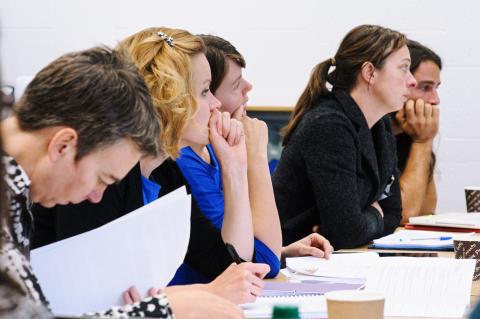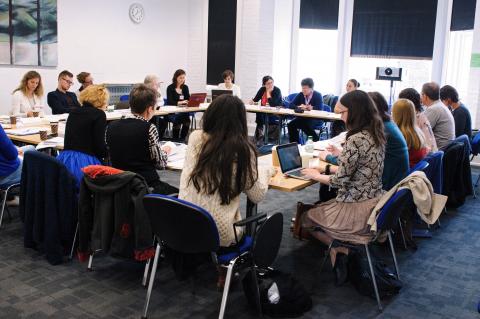 On September 11th and 12th, Liberty Barnes and Christina Benninghaus organized and hosted a conference, entitled “Con/Tested: Sperm, Sterility, and Masculinity,” dedicated to the historical and social study of male sterility and infertility. Thirty scholars participated in the event, including historians, sociologists, social psychologists, and anthropologists. Presenters and discussants represented 15 different universities in ten different countries.
On September 11th and 12th, Liberty Barnes and Christina Benninghaus organized and hosted a conference, entitled “Con/Tested: Sperm, Sterility, and Masculinity,” dedicated to the historical and social study of male sterility and infertility. Thirty scholars participated in the event, including historians, sociologists, social psychologists, and anthropologists. Presenters and discussants represented 15 different universities in ten different countries.
As the conference demonstrated, male reproduction provides a rich site for exploring a variety of sociological themes and pressing social issues, including gender, sexuality, sexual orientation, global inequality, eugenics, epigenetics, environmental degradation, reproductive tourism, state-building, veteran rehabilitation, HIV stigma, and alternative family building.
The work of Emmanuel Betta, Martin Richards, and Bridget Gurtler considered the ethical debates surrounding artificial insemination in legal, religious, and medical discourse as they originated in 19th century France and Italy and became ever more salient in 20th century Britain and the U.S. Papers by Christina Benninghaus and Antje Kampf investigated medical treatments for male infertility in Germany in the 19th and 20th centuries, and another paper by Beat Baechi looked at the transfer of knowledge about male sterility between veterinary science and medicine. Anthropologists Janelle Lamoreaux and Ayo Wahlberg examined scientific understandings of sperm in laboratories and banks in China where increasing environmental pollution is raising concerns about male fertility. Research presented by Marcia Inhorn, Fiona Parrott and Liberty Barnes analysed the effects of male infertility, its diagnosis and  treatment, on constructions of masculinity by focusing on medical care in the United Arab Emirates, Malawi, and the United States, respectively. Two final papers by Damien Riggs and Robert Pralat examined gay men’s experiences with reproduction and showed how these are complicated in cases of sperm donation and in the context of HIV stigma.
treatment, on constructions of masculinity by focusing on medical care in the United Arab Emirates, Malawi, and the United States, respectively. Two final papers by Damien Riggs and Robert Pralat examined gay men’s experiences with reproduction and showed how these are complicated in cases of sperm donation and in the context of HIV stigma.
Conference organizers plan to publish the conference proceedings as an edited volume to make this rich collection readily available to historians and social scientists. Many thanks to the sponsors who made this conference possible, including the Wellcome Trust, the Sociology of Health and Illness Foundation, ReproSoc, and Generation to Reproduction.
